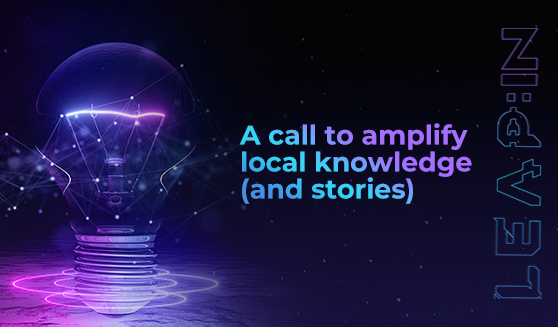
Why sustainability is the heart of the smart city revolution
The smart cities of the future will use tech to lower emissions, cut urban temperatures, and improve quality of life in highly populated areas.


Welcome to this week’s LEAP:IN newsletter. Each week, we unpack leader’s powerful quotes and decipher the tech landscape. With exclusive content from some of the world’s leading experts in AI, robotics, space, edutech, climate tech and more, read on to discover this week’s insights and subscribe to receive weekly updates direct to your inbox.
This week we’re quoting…
Dr. Makaziwe Mandela (House of Mandela Foundation)
What Mandela said:
“I think there should be collaboration between our governments and tech companies to be able to adapt the technologies for the unique environments that are there in Africa.”
It’s about understanding how tech can (and will) be used
The reality is that just because a technology exists in a place doesn’t mean it’ll work. And just because a technology works in a place doesn’t mean it’ll be used in the way its creator expected (or intended) it to.
Nathaniel Allen (Assistant Professor at the Africa Center for Strategic Studies) pointed out, for example, that the spread of emerging technologies (like facial recognition cameras, drones, and smart city tech) across the African continent has the potential to improve government revenues and prevent corruption. But, he wrote, “the digital revolution’s ultimate legacy will be determined not by technology, but by how it is used.”
The same tech that could improve national security and government effectiveness, foster inclusion and increase transparency, could also be used as “a tool of repression, division, and conflict.”
So Mandela’s call for tech companies to build local partnerships and understand the countries they’re working in isn’t just about making sure tech is accessible to citizens. It runs deeper than that — companies need to consider if their products will actually be helping citizens, or harming them.
On a lighter note…
And we love projects like this:
iamtheCODE is an African-led global movement with a mission to mobilise governments, private companies, and philanthropic organisations to invest in future tech that will drive sustainable development for women and girls, particularly in marginalised communities. It aims to enable one million young women and girls to become coders by 2030. And one of iamtheCODE’s key ambassadors is Mbali Hlongwane — founder of Pink Codrs Africa (which challenges the global shortage of female coders).
Watch the video: Tech in developing countries
And…
Frank Dai (President, Cloud Business at Huawei Middle East)
What Dai said:
“Those companies who take the pioneer role into digitalisation get the benefit of the technology. [But in some industries and companies] there is still a lack of skill sets to embrace new technology in digitalisation. And we believe the skill sets to embrace new technology will impact on their performance.”
Service-based tech works around this
Technology that packs complex digital processes into user experiences that seem (on the surface) very simple allows companies and industries to overcome skills gaps. Dai wasn’t the only #LEAP22 speaker to talk about this — Adele Trombetta detailed the way that Cisco transformed from a technology-centric company, to an experience-centric one.
But that transformation in itself requires certain skills from employees (to be an experience-led business you’ve got to have a team with strong interpersonal skills, for example).
So, Dai’s words got us wondering:
What are the most in-demand skill sets in tech right now?
The World Economic Forum’s 2020 Future of Jobs report (which looked ahead to 2022 and beyond) said that 50% of all employees will need to reskill by 2025, as the adoption of technology increases.
So HR Forecast set about to find out what the most in-demand tech skills will be over the next few years. Their researched covered more than 200 million jobs, and found that:
Storytelling: the quiet hero of communication and tech
While we’re on the subject of skill sets and interpersonal prowess, we wanted to tell you about a book we’ve been reading: How to tell your story so the world listens, by Bobette Buster. Not only will it help you craft your awe-inspiring talk for LEAP23 (hint hint), but it’s just a really great exploration of the power of stories that we think can be applied to any business, any tech product, and any person with a vision they want to share.

The smart cities of the future will use tech to lower emissions, cut urban temperatures, and improve quality of life in highly populated areas.

Discover the cities that rank highly for smart city preparedness, and learn why locally relevant innovation is more important than cutting-edge tech.

If you’ve ever thought about becoming a tech investor, read this – learn why investors are the quiet force shaping the future of the industry.

The smart cities of the future will use tech to lower emissions, cut urban temperatures, and improve quality of life in highly populated areas.

Discover the cities that rank highly for smart city preparedness, and learn why locally relevant innovation is more important than cutting-edge tech.

If you’ve ever thought about becoming a tech investor, read this – learn why investors are the quiet force shaping the future of the industry.